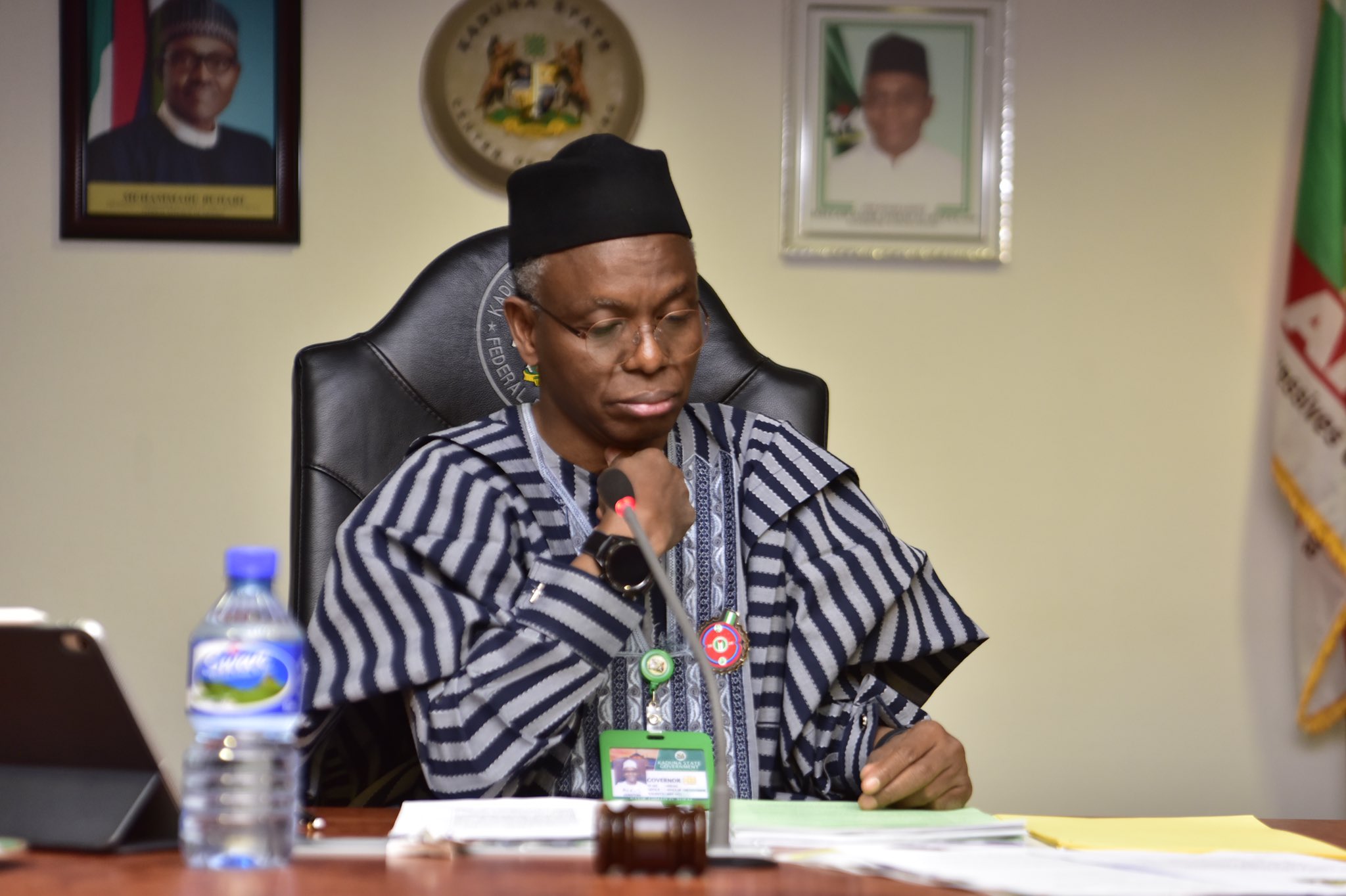Worsening insecurity in Kaduna State
On Sunday, the Southern and Middle Belt Leaders Forum (SMBLF) asked President Muhammadu Buhari to urgently stop the killings in Kaduna State. Expressing anger over the wave of killings, especially in the southern part of the state, it also called on the president to bring the perpetrators to face the law. Religion, ethnicity compounding communal […]

Governor Nasiru El-Rufai of Kaduna state
On Sunday, the Southern and Middle Belt Leaders Forum (SMBLF) asked President Muhammadu Buhari to urgently stop the killings in Kaduna State.
Expressing anger over the wave of killings, especially in the southern part of the state, it also called on the president to bring the perpetrators to face the law.
- Religion, ethnicity compounding communal violence in Southern Kaduna – El-Rufai
- Kaduna lawmakers tackle govts over Southern Kaduna killings
Indeed, the orgy of violence has defied measures imposed by the Kaduna State Government, as there are consistent reports of rustling of livestock, kidnappings, destruction of houses, killings and survivors in hospitals receiving treatment for various degrees of gunshot wounds.
On July 21, Presidential Spokesperson, Garba Shehu, maintained that, “From available security records, the problem in Southern Kaduna is an evil combination of politically-motivated banditry, revenge killings and mutual violence by criminal gangs acting on ethnic and religious grounds.
“Southern Kaduna enjoys comprehensive security deployments, including the army, special forces of both the army and the air force, surveillance aircraft by the air force and mobile police units that are on ground on a 24-hour basis to forestall criminality and keep the peace.”
The Governor of Kaduna State, Nasir el-Rufai, who noted that insecurity in the state was being perpetrated by “criminal elements” operating in the entire North West, regretted that the criminality of bandits was coated with ethnic and religious hues when it affected communities in the southern parts of the state.
This, he said, exacerbated communal tensions and pitched people who had lived peacefully together against each other.
The governor stated that peace required that everyone should adhere to the rule of law and avoid self-help, because ultimately peace depends on the willingness of people to live in harmony and to settle their differences peacefully.
Gov. El-Rufai also noted that the bandits attacked people irrespective of their religion or ethnicity, regretting that when the bandits attacked in Southern Kaduna, youths from the affected communities often responded by mobilising to attack Fulani communities in their area as they presumed that they shared the same ethnicity with the bandits.
These Fulani communities often resort to self-help when they are attacked, neglecting to report to traditional authorities or security agents to resolve the matter, opting instead for revenge. These fuels cycles of attacks, revenge and reprisals in Southern Kaduna.
But the killings and reprisals occur because federal, state and local governments have failed in securing the lives and property of the people.
In addition, the various Kaduna State Governments have failed to muster the political will to implement White Papers on past crises, including the Justice Rahila Cudjoe Commission of Inquiry into the 1992 Zangon-Kataf Crisis and the 1995 report of the AVM Usman Muazu Committee.
For example, the May, 1992 Zangon-Kataf crisis was triggered by a dispute over land, the same issue that caused the dispute of June 5, 2020, which led to widespread violence. Governor El-Rufai imposed a 24-hour curfew on Jema’a and Kaura local government areas after gunmen attacked Zikpak and Ungwan Masara in Fantsuam Chiefdom of Jema’a Local Government Area, and Maraban Kagoro in Kaura Local Government Area. Nine persons were killed. In four days last week, over 43 people were killed by invading gunmen in communities in Kaura, Zangon Kataf, Kauru and Kajuru LGAs of the state.
The killings have become so routine as if it is beyond the ability of the nation’s defence and security agencies to stop them. In exasperation last week,, the Southern Kaduna Baptist Conference said it was seeking divine intervention.
The Kaduna killings have reached unacceptable levels. It is time for federal and state governments to do more to stop these killings. Stakeholders should rein in youths and pastoralists in the region. They should resist the urge to take laws into their hands.
Added to the carnage in Birnin Gwari, the insecurity on the Kaduna-Abuja route, Kaduna State, is indeed under siege. And the state, with its array of strategic institutions, is too important to be left to fall further. So, the federal and state governments should rise up to their responsibilities.
